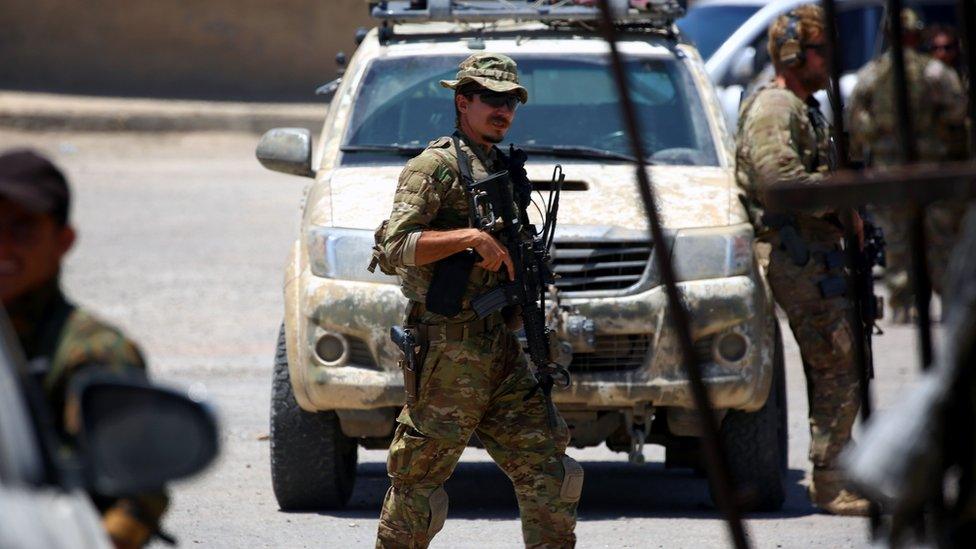Trump threatens to 'devastate' Turkish economy over Syrian Kurds
- Published
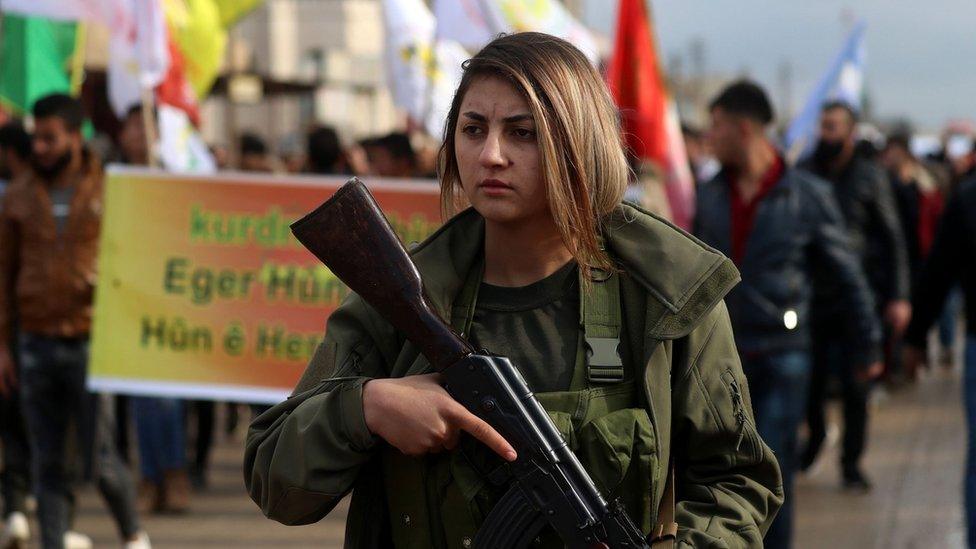
Syrian Kurds have been protesting against Turkish threats to carry out a new offensive
US President Donald Trump has threatened to "devastate Turkey economically" if it attacks Kurdish forces in Syria following a planned pullout of US troops.
In two tweets on Sunday, Mr Trump said that he did not want the Kurds to provoke Turkey either.
US forces have fought alongside a Kurdish militia in northern Syria against the Islamic State (IS) group.
Turkey, however, regards the People's Protection Units (YPG) as terrorists.
President Recep Tayyip Erdogan has spoken angrily about American support for the group and vowed to crush it. Turkey's foreign minister has said the country "will not be deterred by any threat".
Mr Trump's comments on Sunday followed further criticism of his abrupt decision to withdraw US forces from Syria.
A senior figure in Saudi Arabia's royal family, Prince Turki al-Faisal, told the BBC it would have a "negative impact" that would benefit Iran, Russia and Syria's President Bashar al-Assad.
US Secretary of State Mike Pompeo is currently in the Saudi capital Riyadh as he tours the Middle East to reassure US allies in the region.
What did Mr Trump say?
The president defended his decision to withdraw troops, saying any remaining IS fighters could be attacked from the air.
He did not say how Turkey's economy would suffer if it attacked the YPG.
The US imposed sanctions and trade tariffs on Turkey in August, amid a row over a detained US pastor - contributing to a sharp drop in the value of the Turkish lira. Pastor Andrew Brunson was released in October.
Mr Trump also mentioned the creation of a "20-mile (32km) safe zone", which the BBC's Barbara Plett Usher says hints at the kind of solution Mr Pompeo is trying to negotiate.
Allow X content?
This article contains content provided by X. We ask for your permission before anything is loaded, as they may be using cookies and other technologies. You may want to read X’s cookie policy, external and privacy policy, external before accepting. To view this content choose ‘accept and continue’.

The president also said that Russia, Iran and Syria had been the biggest beneficiaries of US action in Syria and it was time to bring American soldiers home.
Allow X content?
This article contains content provided by X. We ask for your permission before anything is loaded, as they may be using cookies and other technologies. You may want to read X’s cookie policy, external and privacy policy, external before accepting. To view this content choose ‘accept and continue’.

Turkey's foreign minister, Mevlut Cavusoglu, dismissed Mr Trump's threats.
"We have said multiple times that we will not fear or be deterred by any threat. You can get nowhere by threatening Turkey economically," he said.
He also criticised Mr Trump's methods, saying: "Strategic alliances should not be discussed over Twitter or social media."
President Erdogan's spokesman, Ibrahim Kalin, said Turkey expected the US to "honour our strategic partnership".
"Terrorists can't be your partners and allies," he said.
President Trump shocked allies and faced strong criticism at home last month when he ordered US forces to immediately begin withdrawing from the approximately 30% of Syria controlled by the YPG-led Syrian Democratic Forces (SDF) alliance.
The US military began its pullout last week by withdrawing some military equipment from Syria, although its troops remained in the country.
What has Mike Pompeo said?
Over the weekend, Mr Pompeo said he had spoken to Mr Cavusoglu by phone and was "optimistic" that an agreement could be reached with Turkey to protect Kurdish fighters.
Speaking in Abu Dhabi, Mr Pompeo said the US recognised "the Turkish people's right and Mr Erdogan's right to defend their country from terrorists".
"We also know that those fighting alongside us for all this time deserve to be protected as well," he added.
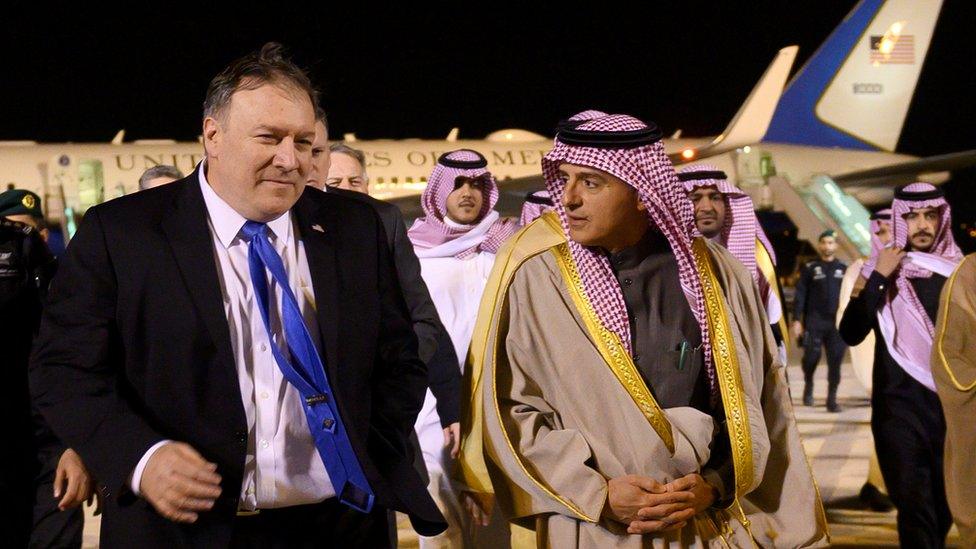
Mike Pompeo is on a politically sensitive visit to the Middle East
In Riyadh, Mr Pompeo discussed Iran and the conflicts in Yemen, external and Syria with King Salman.
It is not clear whether he sought an update on the investigation into the murder of journalist Jamal Khashoggi.
Mr Khashoggi, a critic of Saudi Arabia's rulers, was murdered at the Saudi consulate in Istanbul three months ago.
How many US troops are in Syria?
About 2,000 US military personnel are reported to be deployed in northern Syria.
Ground troops first arrived in autumn 2015 when then-President Barack Obama sent in a small number of special forces to train and advise YPG fighters.
Is this the end for Islamic State?
The US did this after several attempts at training and arming Syrian Arab rebel groups to battle IS militants descended into chaos.
Over the intervening years, the number of US troops in Syria has increased, and a network of bases and airfields has been established in an arc across the north-eastern part of the country.
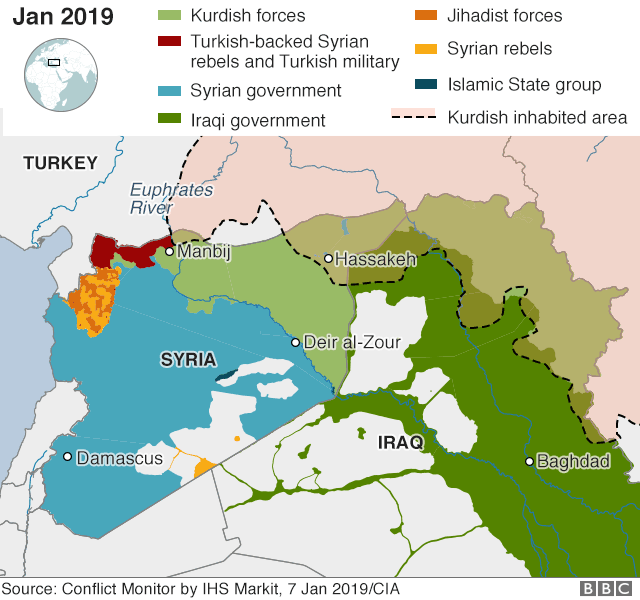

- Published23 December 2018
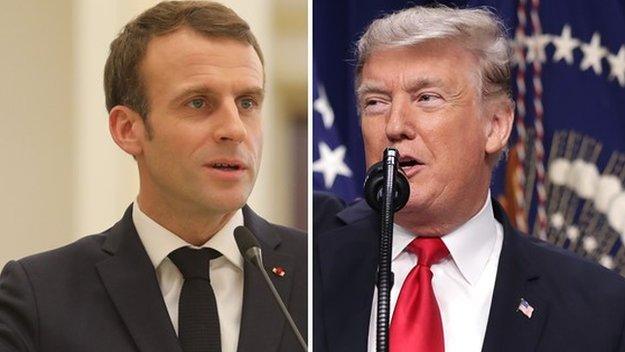
- Published23 December 2018
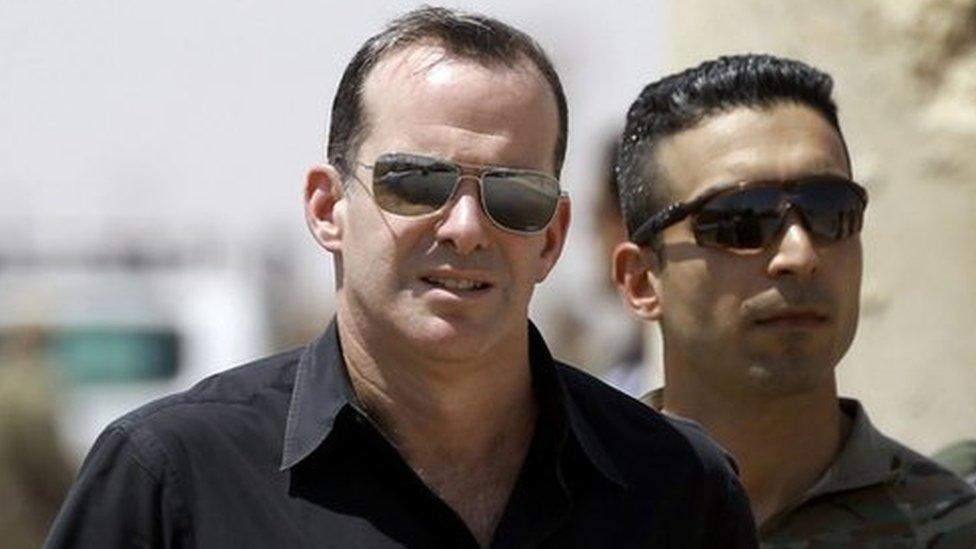
- Published20 December 2018
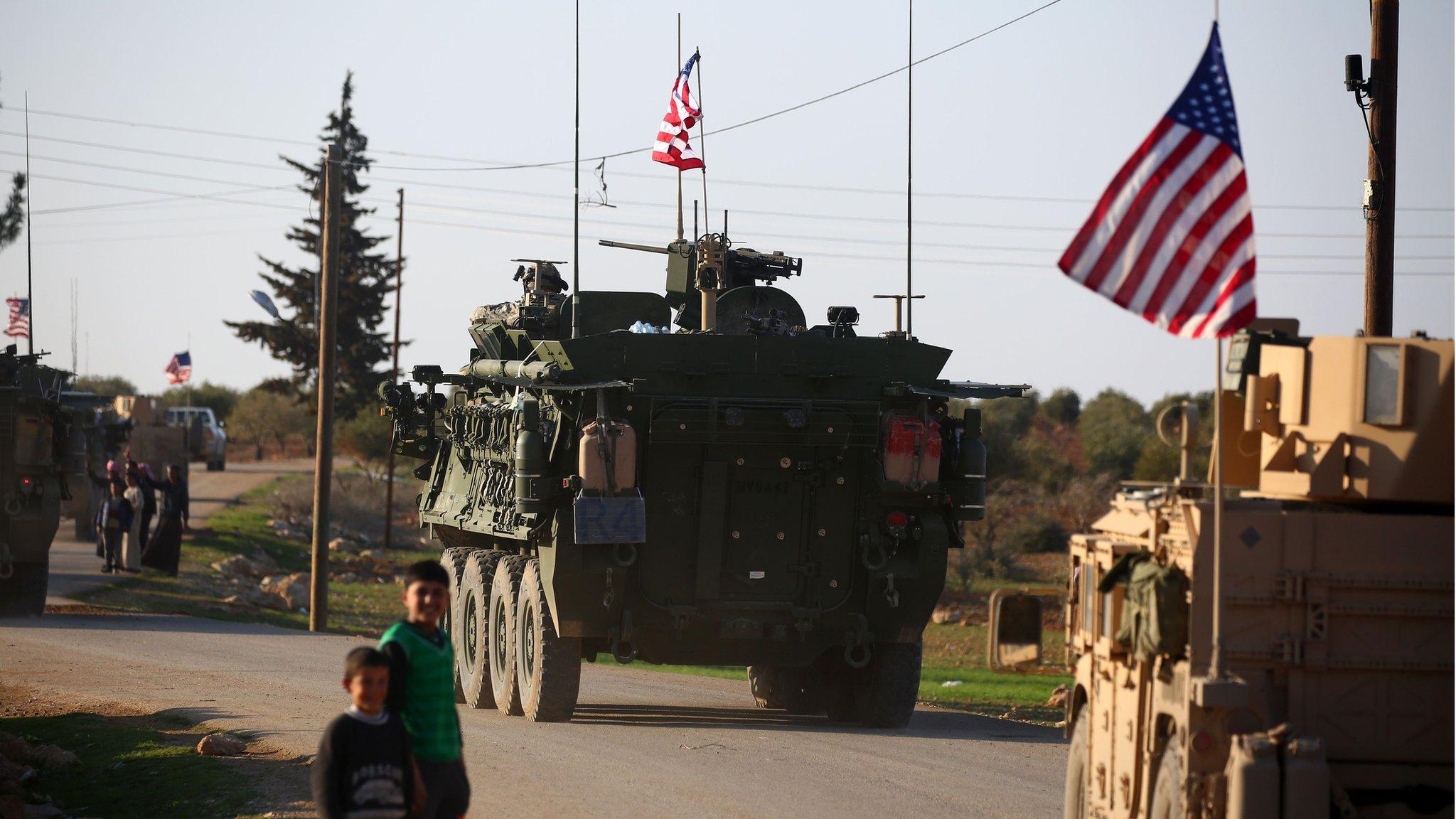
- Published20 December 2018
